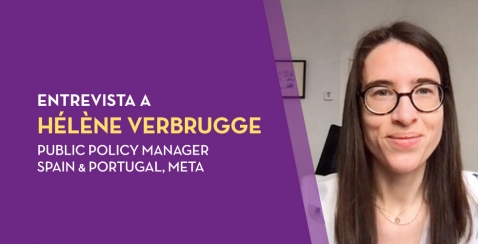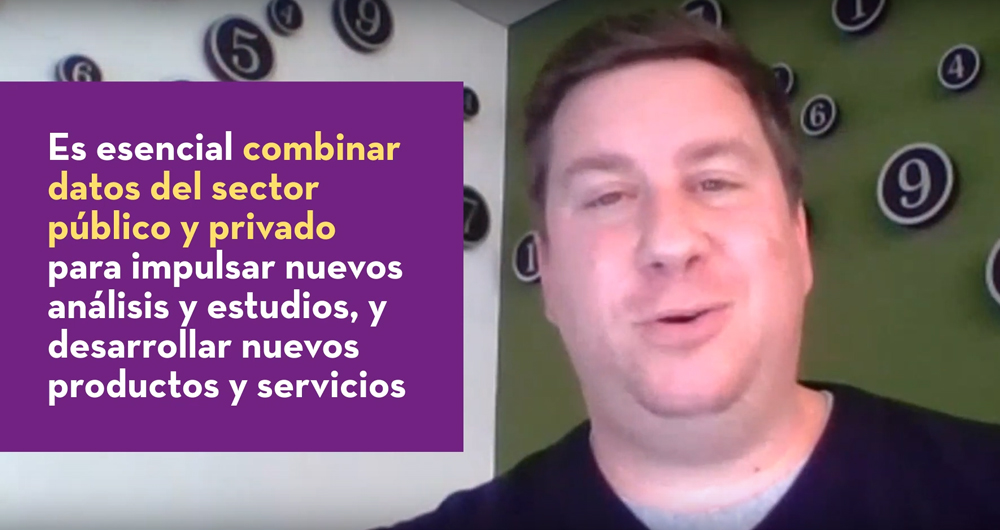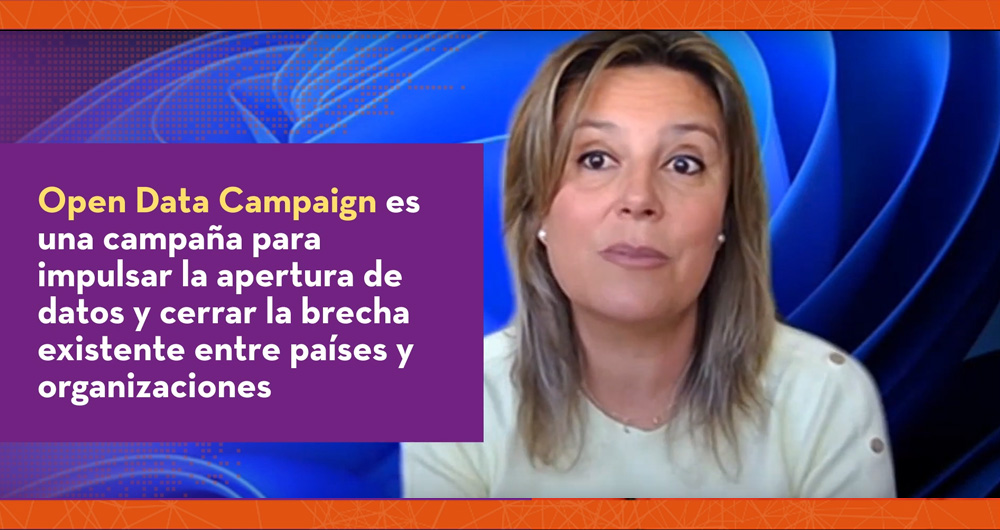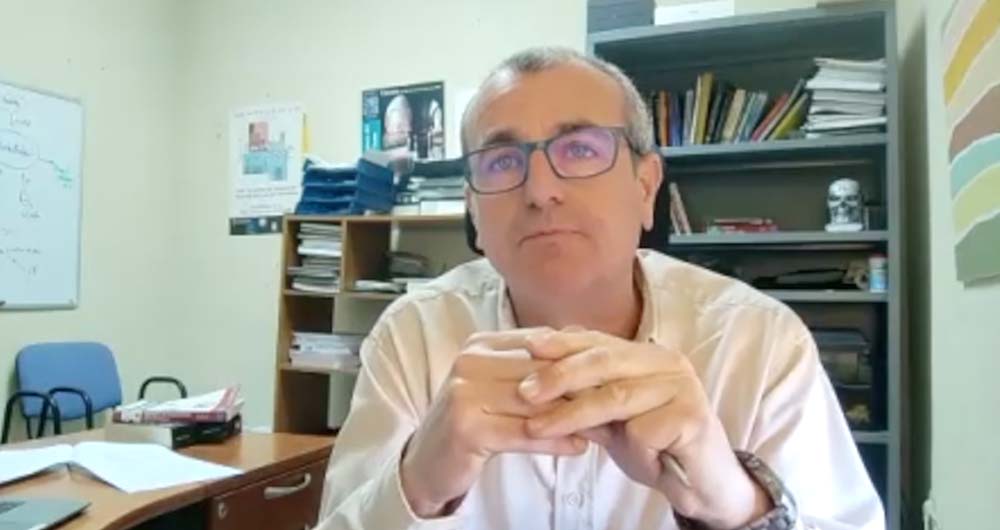Interview with Hélène Verbrugghe, Meta's Public Policy Manager for Spain and Portugal
Fecha: 27-04-2022
Nombre: Hélène Verbrugge
Sector: Science and technology
Organismo, Institución o Empresa: Meta

A few months ago, Facebook surprised us all with a name change: it became Meta. This change alludes to the concept of "metaverse" that the brand wants to develop, uniting the real and virtual worlds, connecting people and communities.
Among the initiatives within Meta is Data for Good, which focuses on sharing data while preserving people's privacy. Helene Verbrugghe, Public Policy Manager for Spain and Portugal at Meta spoke to datos.gob.es to tell us more about data sharing and its usefulness for the advancement of the economy and society.
Full interview:
1. What types of data are provided through the Data for Good Initiative?
Meta's Data For Good team offers a range of tools including maps, surveys and data to support our 600 or so partners around the world, ranging from large UN institutions such as UNICEF and the World Health Organization, to local universities in Spain such as the Universitat Poliècnica de Catalunya and the University of Valencia.
To support the international response to COVID-19, data such as those included in our Range of Motion Maps have been used extensively to measure the effectiveness of stay-at-home measures, and in our COVID-19 Trends and Impact Survey to understand issues such as reluctance to vaccinate and inform outreach campaigns. Other tools, such as our high-resolution population density maps, have been used to develop rural electrification plans and five-year water and sanitation investments in places such as Rwanda and Zambia. We also have AI-based poverty maps that have helped extend social protection in Togo and an international social connectivity index that has been useful for understanding cross-border trade and financial flows. Finally, we have recently worked to support groups such as the International Federation of the Red Cross and the International Organization for Migration in their response to the Ukraine crisis, providing aggregated information on the volumes of people leaving the country and arriving in places such as Poland, Germany and the Czech Republic.
Privacy is built into all our products by default; we aggregate and de-identify information from Meta platforms, and we do not share anyone's personal information.
2. What is the value for citizens and businesses? Why is it important for private companies to share their data?
Decision-making, especially in public policy, requires information that is as accurate as possible. As more people connect and share content online, Meta provides a unique window into the world. The reach of Facebook's platform across billions of people worldwide allows us to help fill key data gaps. For example, Meta is uniquely positioned to understand what people need in the first hours of a disaster or in the public conversation around a health crisis - information that is crucial for decision-making but was previously unavailable or too expensive to collect in time.
For example, to support the response to the crisis in Ukraine, we can provide up-to-date information on population changes in neighbouring countries in near real-time, faster than other estimates. We can also collect data at scale by promoting Facebook surveys such as our COVID-19 Trends and Impact Survey, which has been used to better understand how mask-wearing behaviour will affect transmission in 200 countries and territories around the world.
3. The information shared through Data for Good is anonymised, but what is the process like? How is the security and privacy of user data guaranteed?
Data For Good respects the choices of Facebook users. For example, all Data For Good surveys are completely voluntary. For location data used for Data For Good maps, users can choose whether they want to share that information from their location history settings.
We also strive to share how we protect privacy by publishing blogs about our methods and approaches. For example, you can read about our differential privacy approach to protecting mobility data used in the response to COVID-19 here.
4. What other challenges have you encountered in setting up an initiative of this kind and how have you overcome them?
When we started Data For Good, the vast majority of our datasets were only available through a licensing agreement, which was a cumbersome process for some partners and unfeasible for many governments. However, at the onset of the COVID-19 pandemic, we realised that, in order to operate at scale, we would need to make more of our work publicly available, while incorporating stringent measures, such as differential privacy, to ensure security. In recent years, most of our datasets have been made public on platforms such as the Humanitarian Data Exchange, and through this tool and other APIs, our public tools have been queried more than 55 million times in the past year. We are proud of the move towards open source sharing, which has helped us overcome early difficulties in scaling up and meeting the demand for our data from partners around the world.
5. What are Meta's future plans for Data for Good?
Our goal is to continue to help our partners get the most out of our tools, while continuing to evolve and create new ways to help solve real-world problems. In the past year, we have focused on growing our toolkit to respond to issues such as climate change through initiatives such as our Climate Change Opinion Survey, which will be expanded this year; as well as evolving our knowledge of cross-border population flows, which is proving critical in supporting the response to the crisis in Ukraine.














